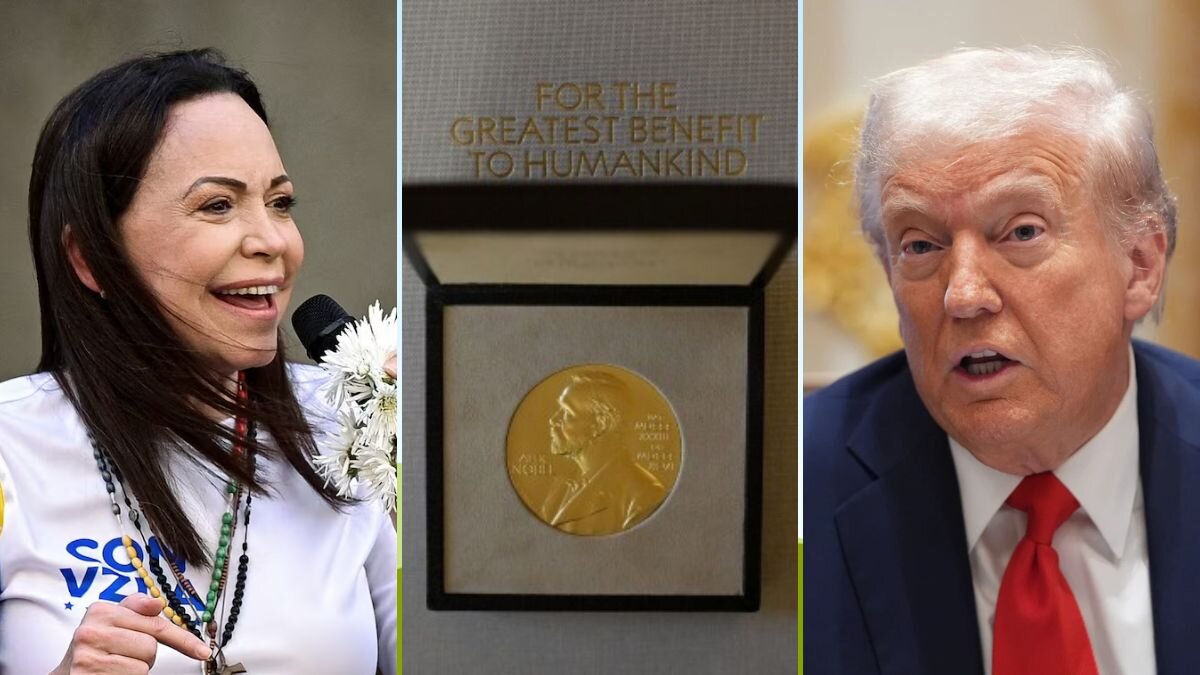The Nobel Peace Prize has lost its meaning
Jurist and researcher in international relations

TEHRAN - The Nobel Prize, established under the will of Alfred Nobel in 1901, was meant to be awarded annually to “the person or organization that has done the most or the best work for the benefit of humanity” in relation to peace. Yet from the very beginning, the interpretation of its criteria has rested in the hands of the Norwegian Committee, and its decisions — especially in politically sensitive cases — have repeatedly stirred controversy.
This history shows that the “standard of peace” has never had a clear definition, and that today’s political interpretations of “efforts for peace” have stripped the prize of its original meaning.
From Aung San Suu Kyi to Shirin Ebadi, and now the current laureate María Corina Machado (María Corina Machado), the list of choices reveals that the criteria have become increasingly political and power-driven. These selections have more often legitimized radical, politicized, and even militaristic actions than celebrated genuine and institutionalized peace.
They are, in truth, those who have sought not peace itself, but peace through war! — and such peace can never hold true meaning.
Indeed, if “peace through war” is to be accepted as meaningful, then there is no longer any such thing as human or moral peace.
There are countless clear examples of contradiction between the title of “peace” and the deeds of those who have received this prize:
Aung San Suu Kyi, born into a prominent Burmese family, was long recognized in exile and house arrest as a symbol of non-violent resistance and received the Nobel Prize in 1991. Yet after coming to power, her government’s handling of the violence by the military and armed groups in Rakhine State and the Rohingya crisis became the subject of extensive international reports.
The UN Fact-Finding Mission (2018) documented widespread human-rights violations and the military’s role in them — a historical stain and a bitter irony for someone once honored as a champion of peace.
Suu Kyi, once the emblem of non-violent struggle, was later condemned for her government’s conduct toward the Rohingya minority and its complicity in state repression. Her record raises a fundamental question: how can the label of “peace” be placed upon a person or government that, in the end, acted weakly — or even in concert — in the face of mass persecution and human-rights violations?
Another example is Henry Kissinger, recipient of the 1973 Nobel Peace Prize, whose selection immediately provoked outrage. Critics held him responsible for policies that prolonged the Vietnam War and led to massive civilian casualties; two Nobel Committee members even resigned in protest. This historical case stands as a textbook example of “unconventional peace,” which undermined the prize’s credibility.
Barack Obama is yet another case: his 2009 award was described as an “advance prize” granted for intention and hope rather than achievement. Many deemed it premature, and later, his administration’s record in military and foreign policy drew criticism from those who had expected tangible results. Even by American accounts, his government oversaw the highest number of military operations since George W. Bush — proving that his peaceful rhetoric and real-world actions were profoundly at odds.
Finally, there is Shirin Ebadi, whose selection, many argue, was purely political and an opportunistic use of the “peace” label. Her later positions and defense of aggressive interventions in Iran, critics say, have aligned her more with advocates of confrontation than with true examples of non-violence.
In recent years, the name of Donald Trump has also been floated by various individuals and groups as a candidate for the Nobel Peace Prize — a proposition that seemed more absurd than serious. A man who should rightly be called the GLOBAL WARMAKER styled himself the “President of Peace.”
Despite his and his entourage’s persistent efforts to brand him as such, the prize — now itself emptied of meaning — still eluded his grasp.
In a world where Mahatma Gandhi once stood as the emblem of peace and non-violent resistance, we have reached a point where international arsonists portray themselves as peace icons and hide their atrocities beneath the shadow of the Nobel Peace Prize.
Has the prize that once symbolized anti-colonial and non-violent resistance not become a tool for legitimizing the geopolitical power games of today? Historical and contemporary examples alike show that political interests, state pressures, and strategic calculations have often overshadowed the Nobel Committee’s decisions — leaving the very notion of “peace” hollow and devoid of truth.
Leave a Comment